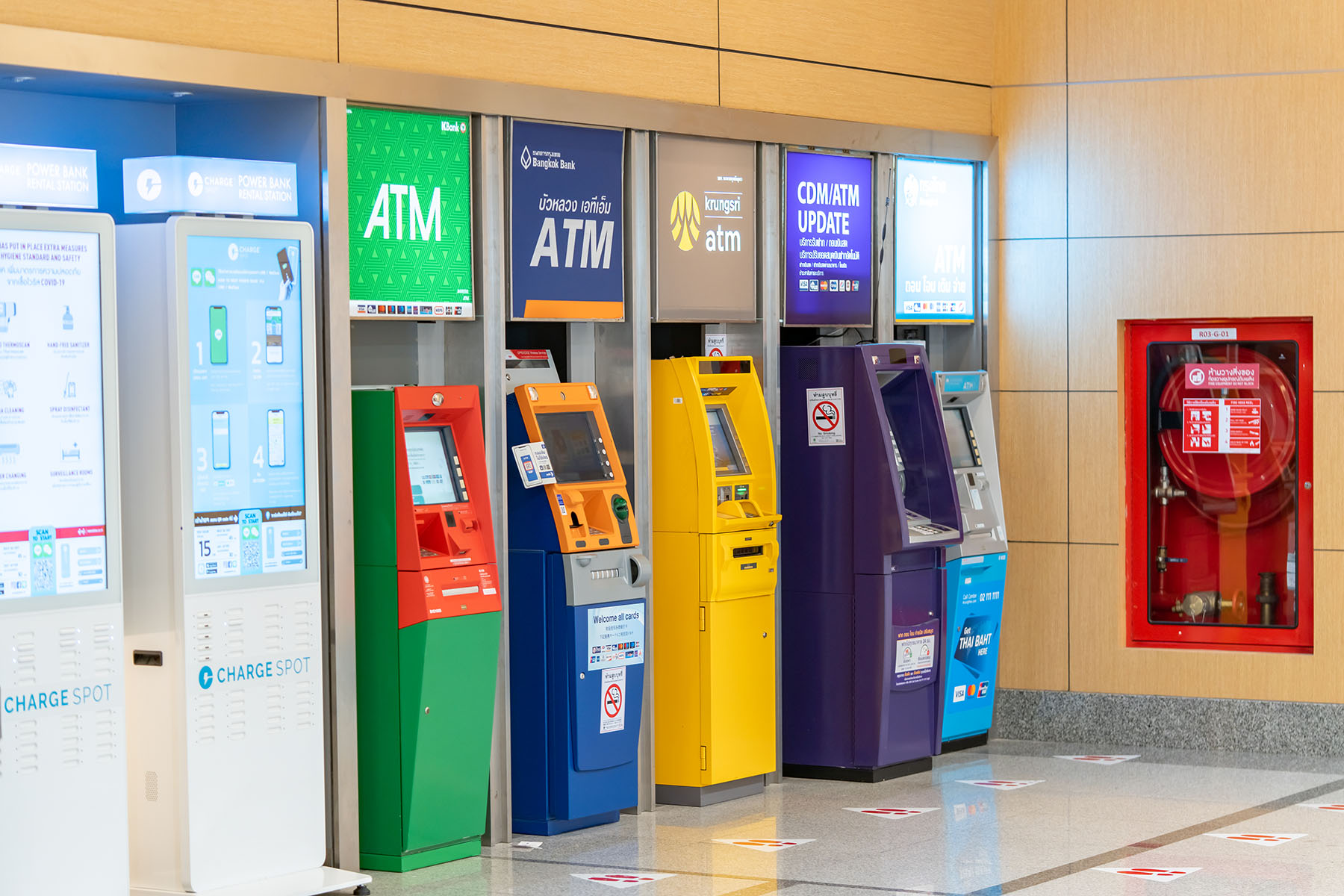Many entrepreneurs dream of setting up an enterprise abroad. Thailand is a great location to run a business, but you’ll need the right idea and demonstrable business skills. There is no simple self-employment visa, so you’ll need to set up a registered company in one of the country’s growth industries if you want to strike out alone.
Find out all there is to know about starting a business in Thailand by reading the following sections:
- Business landscape in Thailand
- Can foreigners open a business in Thailand?
- What are the legal structures for businesses in Thailand?
- How do you start a business in Thailand as an international?
- How do you start an online business in Thailand?
- Foreign companies opening up a branch or subsidiary in Thailand
- What are the requirements for starting a non-profit in Thailand?
- What administration does your business need in Thailand?
- Support and advice when starting up a business in Thailand
- Does Thailand have corporate social responsibility (CSR)?
- Useful resources
Business landscape in Thailand
Thailand is the second-biggest economy in Southeast Asia, and it is growing rapidly – there were 63,340 newly registered businesses in Thailand in 2020. The country experienced the 10th fastest growth for small businesses worldwide that year, with a 29% year-on-year increase.
The startup and tech industries are currently booming, and the Thai Board of Investment (BOI – คณะกรรมการส่งเสริมการลงทุนไทย) is keen to capitalize on this by harnessing local talent and attracting overseas investment and skills.

The country has a slightly more relaxed business culture than many other Asian countries, which makes it appealing to many international entrepreneurs.
Can foreigners open a business in Thailand?
Foreigners can start a business in Thailand. However, there are several regulations they must follow and criteria they must meet. Before setting up your company, you must check that it is in an industry that internationals can work in. In addition, you’ll also need the relevant visa – you can read more on this further down the article.
What kind of business can internationals start in Thailand?
There are around 40 prohibited professions not open to non-Thai nationals and over 40 business activities where internationals are forbidden or restricted when it comes to ownership.
The Foreign Business Act separates types of businesses into three lists. Foreigners may not start a company that carries out activities in the first list. For lists two and three, you’ll need permission from the Thai government, and those in list 2 require a Thai national to own at least 40%. In addition, you’ll need a Foreign Business License (ใบอนุญาตประกอบธุรกิจของคนต่างด้าว) for those in list 3.
Additionally, if your business is in a BOI-approved industry, you can benefit from certain incentives, such as exemption from corporate income tax, import duties, and other advantages.
What are the legal structures for businesses in Thailand?
The BOI guide to starting a business in Thailand (PDF) lists the main legal business structures. These are:
Sole proprietorship
Sole proprietorships (กิจการเจ้าของคนเดียว) are a legal structure that is only available to Thai citizens. They are the simplest form of business where a sole owner, in essence, is the business.
The enterprise doesn’t exist as a separate legal entity, so the owner assumes sole responsibility for business admin, debts, and tax payments. This is very similar to freelancing, where self-employed workers don’t separate personal and business income.

Partnership
Partnership businesses (ธุรกิจห้างหุ้นส่วนสามัญ) in Thailand differ from sole proprietorships as they have at least two business owners, though there can be more. However, they differ from full legal company structures as there are no company shares or shareholders.
There are three distinct types of partnership in Thailand:
- Non-registered partnership (ห้างหุ้นส่วนสามัญไม่จดทะเบียน): A basic unlimited partnership where the business doesn’t exist as a legal entity and the owners assume full liability, paying personal income tax on their share of the profits
- Registered partnership (ห้างหุ้นส่วนสามัญจดทะเบียน): Where the business is registered as a separate legal entity that pays corporate tax, and owners aren’t personally liable for business debts
- Limited partnership (ห้างหุ้นส่วนจำกัด): A kind of hybrid model where there is at least one partner fully liable who is in charge of managing the business and at least one partner with limited liability
Foreign ownership cannot exceed 49% of these partnership models unless the business has a BOI or Department of Business Development (DBD – กรมพัฒนาธุรกิจการค้า) license.
Private limited company
Private limited companies (บริษัทเอกชนจำกัด) are standard registered company model has at least three owners or directors who are legally employees of the business, which is a separate legal entity that pays corporate tax (ภาษีเงินได้นิติบุคคล). Liability is limited, meaning that any debts are associated with the company rather than the owners.
Company capital is divided into shares, and the owners are shareholders. Foreign shareholder total cannot exceed 49% unless the business has a BOI or DBD license. Private companies in Thailand often form a board of directors to make business management easier.
Public company
Public companies (บริษัทมหาชน) are similar to private companies, but they must have a minimum of 15 owners or shareholders. Company shares can be sold to the general public, meaning that the business is eligible to be listed on the Stock Exchange of Thailand.

As with other business forms in Thailand, foreign ownership of public companies is capped at 49% for businesses without BOI or DBD approval.
How do you start a business in Thailand as an international?
Your first steps when starting a company in Thailand will be to research the market, come up with a workable business plan, get a visa, and register your business. You should also check whether you’ll need any permits and authorization for your activities.
According to World Bank statistics, it takes around six days on average to start up a business in Thailand from inside the country. This is much quicker than the global and regional averages (20 and 23 days, respectively).
How do you obtain a Thai business visa?
All foreigners need a work visa to set up a business in Thailand. Entrepreneurs can choose between:
- Non-immigrant B visa (วีซ่าคนอยู่ชั่วคราวประเภทบี) – you can apply for this if you want to start up or invest in a registered company in Thailand. However, bear in mind the 49% cap on foreign ownership for non-sponsored businesses.
- SMART Visa (สมาร์ตวีซ่า) – there are several different types of SMART Visa, a regime that intends to attract highly skilled workers and entrepreneurs. For example, you can receive a SMART I visa with a minimum investment of ฿5 million in a BOI-approved business and a SMART S visa for starting up a new business in a BOI-approved industry if you have at least ฿600,000 in the bank.
You will need a visa before you enter Thailand. If you arrive in the country with a non-immigrant B visa, you must also apply for a work permit from the Ministry of Labor (MOL).
How do you register your business in Thailand?
If you opt for a legal structure other than a sole proprietorship or a non-registered partnership, registration of your Thai business consists of a few steps. The process is as follows:
- Set up an account with the DBD and register your business name (links in Thai).
- Prepare your official business documents, such as Articles of Association (ข้อบังคับของบริษัท), list of shareholders, and Declaration of Business Operation (หนังสือบริคณห์สนธิ) if you are a private or public limited company.
- Set up a shareholder meeting to organize company documents and pay the initial capital into a company bank account (private and public limited companies only). Minimum capital requirements only apply to foreign majority-owned companies with BOI or DBD approval – the current set amount is ฿2 million.
- Register the business at a local DBD office or via the online portal.
- Register with the inland revenue and get a business tax ID number within 60 days of business registration. Businesses with an annual turnover above ฿1.8 million will also need to register for VAT.
If you set up a public company in Thailand, depending on the nature of your business, you may have to comply with additional registration procedures. You can check this with the DBD.

What licenses or permits do Thai businesses need?
First and foremost, you might need a foreign business license to start a business in Thailand with more than 49% foreign ownership. There are three routes to doing this:
- Getting a Foreign Business Certificate from the BOI if you start a business in one of the country’s growth industries
- Obtaining a Foreign Business License from the DBD. These are usually offered to foreign-owned businesses that are not in direct competition with Thai-owned companies (as detailed in the Foreign Business Act)
- Getting a Treaty of Amity (สนธิสัญญาไมตรี) if you are a US citizen looking to establish a Thai business
You may also need an industry-specific license to operate, depending on your type of business. For example:
- Department of Health Service Support (กรมสนับสนุนบริการสุขภาพ) license if setting up a rehabilitation center or nursing home
- Food and Drug Administration (FDA – สำนักงานคณะกรรมการอาหารและยา) license if dealing with food, alcohol, or medical products
- E-commerce license if trading online
- License from the Bank of Thailand (ธนาคารแห่งประเทศไทย) if dealing in financial services
- License from the Tourism Authority of Thailand (TAT – การท่องเที่ยวแห่งประเทศไทย) if operating as a travel agency
- Ministry of Education license if providing certain educational services
Check with the industry regulatory body before setting up your business to find out what licenses or permits you may need.
How do you start an online business in Thailand?
Starting up an online business in Thailand is pretty much the same as starting up any other type of business. You need to meet the same requirements, get the right visa (if you are not a Thai citizen or permanent resident), and comply with legal business norms.

One key element of setting up shop online in Thailand is getting an e-commerce license. You can apply for this through the DBD. You must do this within 30 days of registering your business, and you will need at least one operational trading website.
Foreign companies opening up a branch or subsidiary in Thailand
Foreign companies wanting to establish a presence in Thailand can choose from the following types:
- Subsidiary (บริษัทย่อย): Essentially opening up a business as a separate legal entity in Thailand with the parent company as a shareholder. Processes and requirements are the same as for setting up any other business.
- Branch: Operates similarly to a limited company but doesn’t have a separate legal entity from the parent company. It has no shareholders and is managed by a head office representative. The branch has to follow Thai business regulations and pay corporate tax on its Thai income, but it is ultimately accountable to its overseas base. The business has to register with the DBD and get a Foreign Business License, but it can have 100% foreign ownership.
- Representative or regional office (สำนักงานผู้แทนหรือสำนักงานภูมิภาค): A company establishes a presence in Thailand but cannot trade or earn income. Its activities are restricted to sourcing goods/services, manufacturing, giving advice and information, and reporting on business trends. Because the office doesn’t make money from its Thai base, it pays no business tax and is exempt from other government fees. It can employ foreign labor with work permits, and it is not subject to the 20% cap on overseas workers.
Branches and representative offices must provide ฿2 million of capital to set up in Thailand.
What are the requirements for starting a non-profit in Thailand?
Thailand’s two main forms of non-profit organization (NPO – องค์กรที่ไม่แสวงหาผลกำไร) are the foundation and the association. Requirements for setting up NPOs in Thailand are:
- Management board or committee of at least three people. Associations require ten members.
- Official name (which must include either the word ‘association’ or ‘foundation’) and a Thai address
- Documentation, such as articles of association detailing the aims of the organization, names/addresses of members, and minutes of the meeting for establishing the NPO
- For foundations: assets of at least ฿500,000, with 50% in cash
The association and foundation are very similar in terms of requirements. For example, their purpose must be for public benefit – they may not generate profits for individuals such as owners or shareholders.
Foundations operate in a similar way to charities – they can raise funds and collect donations from the public to support a specific cause. Meanwhile, associations focus on benefitting society and promoting knowledge. They can engage in profit-making activities, but this profit needs to be used to support the association’s aims.

Bear in mind that the aims and objectives of the NPO must be in line with the Thai Civil and Commercial Code.
You should submit your application to the registrar’s office in the district of your NPO’s main address or head office. If successful, the office will send it to the Ministry of the Interior for final approval. You will then need to register with the inland revenue within 60 days. NPOs in Thailand pay a reduced corporate tax rate of 2–10%, depending on their activities.
What administration does your business need in Thailand?
You must consider the following to ensure that your Thai business complies with administrative regulations and has the best chance of succeeding:
Opening a corporate bank account
Registered Thai businesses need a separate business bank account. You can open an account with a Thai bank or an international one that is licensed to operate in the country. Once you open the account, you must deposit any required capital.
Unregistered businesses, such as sole proprietorships and non-registered partnerships, don’t legally need a separate business account. However, having one can make financial procedures easier.
Accounting, invoicing, and taxes
Whether you run an unregistered business or a limited company, it’s vital to keep accurate accounting records so that you can pay taxes and supply information to Thai tax authorities as required.
Registered businesses in Thailand must file annual tax returns within 150 days of the end of their accounting period. Sole traders and owners of non-registered partnership businesses have to submit personal tax returns each year declaring business earnings.

The standard corporate tax rate in Thailand is 20% on business profits. VAT-registered businesses have to pay 7% of turnover (expected to return to the normal rate of 10% from September 2023).
Business invoicing in Thailand should include:
- Name and address of the customer
- Description and price of goods and services
- Invoice date
- VAT amount, if applicable
The Thai government is encouraging all businesses to move towards e-invoicing to simplify the tax system. This is currently still voluntary, although many larger companies now do this. Under this system, businesses can submit all invoices to the inland revenue when sending them to clients. Alternatively, they should submit them by the 15th of the month following their issue.
Social security
If you hire staff in Thailand, you must register with the National Social Security Fund and pay contributions. This allows your employees to access health insurance, unemployment benefits, pensions, and sick pay. Contribution rates are currently 10%, split evenly between employer and employee, with the government topping up an additional 2.75%.
Self-employed workers such as sole traders, freelancers, and non-registered partnership owners can only access state-funded social security in Thailand if they are citizens. Expats will have to take out private insurance to cover these costs. If you start up a limited company, you are legally classed as an employee of a private company and will have the same social security rights as other workers.
Hiring staff
Businesses that employ staff must comply with Thailand’s labor laws regarding working conditions, wages, work hours, and holiday entitlements. They must also make social security contributions. Make sure that you budget for this when recruiting.

Additionally, when you hire foreign workers, you must consider work visas and permits for prospective workers as detailed in the Alien Workers Act. Not only will foreign employees need the correct documentation, but your business will also be subject to minimum requirements, especially concerning standard non-immigrant B visas.
For example, your workforce may only consist of a maximum of 20% overseas workers, and you must be able to show that you have at least ฿2 million to cover each international employee.
Insurance
Most businesses in Thailand need public liability insurance. However, there are a number of other worthwhile insurance considerations, so it’s advisable to speak to an advisor and shop around to see what package deals are available. Possible business insurance in Thailand can include:
- Professional indemnity insurance
- Building and contents insurance
- Legal insurance
- Vehicle insurance
- Cyber insurance
- Business interruption insurance
Support and advice when starting up a business in Thailand
It’s worth investigating what support is available when you start a business in Thailand. This may vary depending on your type of business and sector. A good place to start is the BOI, which has information on business opportunities in different growth industry areas.

If you’re looking for financial support and advice for your Thai business, you can check out:
- Startup Thailand: Hub for startup businesses in Thailand
- Institute for SME Development (ISMED): Support for entrepreneurs and small business
- Thai Credit Guarantee Corporation: Provides guarantees to viable new businesses with insufficient capital to access bank loans.
- Digital Economy Promotion Agency (DEPA): Runs several programs supporting digital startups.
- AIS: Support for tech startups, including financing, advice, and infrastructure support
- AddVentures: Venture capital opportunities for tech startups
- Beacon Venture Capital: A corporate venture capital fund run by Kasikornbank, where businesses can seek investment
- Market for Alternative Investments (MAI): Stock exchange for smaller businesses in Thailand where they can raise capital
It’s also looking into business support offers from banks in Thailand, such as reduced-rate loans and budget planning support. For additional types of support, the BOI Starting A Business Guide (PDF) details legal, human resources, and premises support services in Thailand, as well as information on regional business parks and innovation districts.
There are also two platforms that specialize in supporting female entrepreneurs in Thailand:
- Digital Business Women Thailand (DBWT): Networking space for businesswomen
- WE-Can: Support program partnership between Space Bangkok and CanCham
Does Thailand have corporate social responsibility (CSR)?
Thailand has had something of an informal CSR culture for many decades, as the majority of businesses are small and medium-sized enterprises (SMEs) rooted in local communities. Additionally, the country’s culture of “doing good in the community” and giving back has given many smaller businesses a social dimension.
However, with the growing presence of multinational corporations in recent decades, the idea of the social and community-driven business has changed. Many bigger organizations in Thailand now have an official CSR policy or strategy in place.
Early CSR approaches tended to focus on internal factors, such as good governance and worker treatment. This was often at the expense of external matters, such as environmental degradation, community engagement, and wider human rights issues. However, it has started to change in recent years.
There are many ways that Thai businesses can adopt good practices. These might include donating a percentage of profits to a cause, volunteering on community projects, and ensuring that employment practices not only respect labor laws, but treat workers fairly. A good place to start is the UN’s 17 Sustainable Development Goals (SDGs) to see where your business could make a positive contribution.
Key improvement areas in Thailand include:
- Health and wellbeing
- Wildlife protection
- Peace, justice, and strong institutions
Of course, the best way to make a difference is to start a business in an area of social need in Thailand. The Thai Securities and Exchange Commission (SEC) has produced an SDG Investor Map (PDF) highlighting the main social investment opportunity areas in the country.
If you need support with improving CSR practices or developing a strategy, you can contact an organization such as Thai Eco Solutions.
Useful resources
- Thailand Board of Investment (BOI) – government agency promoting investment in Thailand
- Department of Business Development (DBD) – government department that deals with business registration in Thailand
- Quick Guide to Starting a Business in Thailand (2022, PDF) – guide for new businesses produced by the BOI





